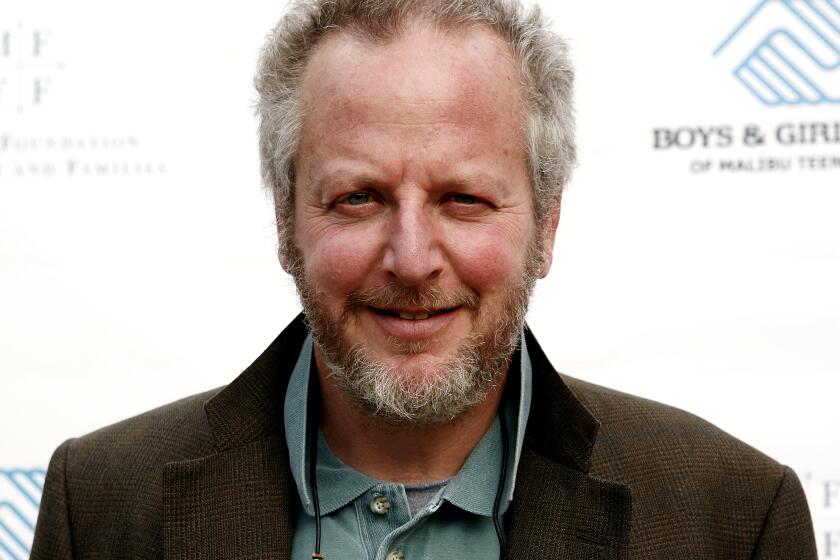Dershowitz vs. Lerner: An Exchange
To the Editor:
A book reviewer who deliberately distorts the message of the book he is reviewing in order to serve his own agenda does a disservice to his readers. That is precisely what Michael Lerner did in his review of my book, “The Vanishing American Jew.”
Incredibly, Lerner tells his readers that had I bothered to “bestir” myself from my “Harvard study,” I might have “discovered” the problem that “an obsessive focus on past suffering banishes joy in today’s world.” Had Lerner bothered to read my book, he would have discovered that this is its central thesis. My entire “Tsuris Theory” is precisely that the Jewish identity is too focused on our past victimization. I explicitly state that “the challenge” confronted by my book is “to move the Jewish state of mind beyond the past obsession with victimization, pain and problems and point it in a new, more positive direction, capable of thriving in an open society.” Ironically, Lerner uses the exact word I use--obsessive--when he purports to be telling the reader that I did not say precisely what I did say. I also emphasize the “joy” of Judaism, which he says I ignore. Indeed, I criticize some older Jews for insisting on “focusing on the ‘oys’ rather than the joys of Judaism.”
This mendacity recurs throughout the review. Lerner says that I “nowhere pose . . . in [my] book” the question of “what’s so bad about assimilation” and why should Jews “learn Hebrew” and “marry only Jews” if we share the larger values of society. I have entire chapters on why assimilation would be a tragedy both for Jews and for America and why we must renew Jewish learning. Indeed, that is the essence of my solution to the Jewish problem: “learning, learning, learning.”
Lerner claims that I am “unaware of the long Jewish legal tradition that required the community to take care of the poor.” Had he read my discussion of Jewish ethics and charity, and particularly of Leonard Fein and “Operation Mazon,” he would have seen that I am fully aware of this tradition.
Lerner incorrectly suggests that I denounce all criticism of Israel. To the contrary, I explicitly say that American Jews should “criticize” Israel when appropriate. I am quite critical of Israel and its current prime minister in my chapter on Aliyah. What I do agree is that we should not “dictate” to a fellow democracy how to micro-manage a complex peace process. That is the position of the United States government as well as the vast majority of Americans--Jews and non-Jews. To suggest that this position is “Stalinist” in its implications, as Lerner does, is to trivialize one of the worst mass murders in history.
The distortion continues. Lerner claims that I ignore his particular hobbyhorse, “spirituality.” He says, “The good news, apparently unknown to Dershowitz, is that [there is] a spiritually alive Judaism . . . a Jewish renewal movement.” Not only do I write about this movement in a section entitled “Jewish Spirituality: You Don’t Have to Become a Buddhist,” but I cite the very authorities he claims are “unknown” to me, such as Abraham Joshua Herschel and Zalman Schachter Shalomi.
Lerner is obviously upset that I do not cite him. That was deliberate because I regard him as a cult figure whose influence on Jewish life is unhealthy. Like most people who think they have a monopoly on “truth,” Lerner is careless about the facts when it comes to describing the views of those outside of his sphere of influence. Lerner, of course, is aware of my negative views toward him, since several years ago he begged me to purchase and become the publisher of his magazine, Tikkun, to save it from bankruptcy. I refused because of my negative views of his cult-like approach to spirituality. I believe he should have disclosed to the readers and the editor his failed effort to establish a financial relationship with me, so that the readers would judge whether his review reflects the bias of a rejected suitor. It should not be surprising that a magazine publisher who recently admitted that he had his editors make up letters to the editor--as Lerner has admitted doing--would make up an entire book to review.
Alan M. Dershowitz, Felix Frankfurter Professor of Law, Harvard Law School, Cambridge, Mass.
Michael Lerner replies:
Alan Dershowitz has little understanding of why people have left the Jewish world, but he is a brilliant litigator, so convinced of his rectitude that truth falls victim to his need to be right. So instead of addressing the central critique of his book I raised in my review--namely, the absence of any substantive vision of Judaism that could possibly compel the allegiance of future generations, Dershowitz attempts to switch the focus to me, imagining I am biased because he declined an invitation to become publisher and chief fund-raiser for Tikkun. Those of us in the nonprofit sector are used to asking many people for help and frequently being told no. If we held a grudge against everyone who turned us down, we’d have no one with whom to talk. I hold no such grudge against Dershowitz or anyone else.
He accuses me of urging my editors to make up letters to the magazine; the charge is false. He suggests that the more than 50,000 people who regularly read Tikkun are part of a “cult” because they have been willing to do what Dershowitz and other guardians of Jewish “political correctness” forbid: publicly criticize Israel’s treatment of Palestinians, which in Dershowitz’s characterization, becomes “dictating” to Israel. That Dershowitz dismisses as a sect a community of readers who support one of the largest circulation liberal Jewish magazines--the only magazine that combines a progressive political perspective with a serious commitment to Judaism as a way of life--reveals how little he understands contemporary American Jewish life.
I’m not surprised that Dershowitz is uncomfortable with a magazine that is at odds with the materialism, selfishness and ethical vacuity of much of American society. He fails to understand that precisely what threatens Jewish continuity as anything more than a community of nostalgia and gefilte fish is a rampant Jewish chauvinism, the glorification of material success as the highest achievement to be honored and an obsessive focus on our own survival as our excuse for why we supposedly no longer have the resources or energy to demand social justice (for African Americans here, for Palestinians in Israel). But how could it be otherwise? No one embodies that chauvinism and willingness to subordinate moral values to self-aggrandizement and the pursuit of power better than Alan Dershowitz.
As for his book, it is a vacuous catalog of names and issues, lacking any coherent moral or spiritual vision. To be sure, he lists Abraham Joshua Heschel (once on a page that includes 46 other names ranging from Samuel Goldwyn to Gertrude Stein, and again on another page when he refers to Mordecai Kaplan’s ridiculing Heschel). He also mentions Zalman Schachter Shalomi and Jewish education. In fact, he mentions almost everything and understands almost nothing. Dershowitz doesn’t understand the moral and spiritual crisis at the center of American Jewish life because he--and the values he exemplifies--is the problem he pretends to solve.
More to Read
Sign up for our Book Club newsletter
Get the latest news, events and more from the Los Angeles Times Book Club, and help us get L.A. reading and talking.
You may occasionally receive promotional content from the Los Angeles Times.






